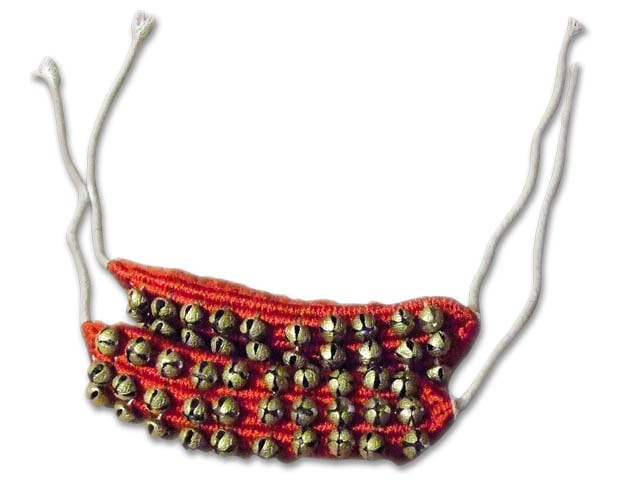Moving on: Dancing back to Swat
After Taliban depart, Swat’s fair-skinned dancing girls are home again.

On a chilly February evening, my friend and I knock on doors in localities in eastern part of Mingora, searching for Swat’s age-long culture, but there is no answer from any house. There is no electricity in the area and the narrow alleys are dark.
Occasional visitors brush past using their mobile phones as torches. Finally, there is a response as a young boy peeps out from a door. After an exchange of whispers we are led to a cramped room of a two- storey house. The room is bare and a tattered sofa lies in a corner. A gas burner dimly lights up the room.
The houses here are famous for their fair skinned dancing girls. Now the women, once targeted by the Taliban, are back in business and music reverberates till late at night.
After a few minutes, the young boy who had opened the door ushers two young girls into the room. Attired in black and red dresses, they say they are cousins and introduce themselves as Rani and Muskan.
In late 2008 at the peak of militancy, Muskan and Rani left their homes for Karachi to escape persecution from the Taliban.
Barely a month after their departure on January 2, 2009, Taliban knocked on a door opposite to their house and dragged out dancer Shabana to Green Chowk. Green Chowk remained true to its other name, Khooni Chowk, and Shabana was shot at the square famous for executions.
Shabana’s death created a ripple effect and almost all girls left their homes for safer places.
“We heard the news of Shabana’s death in Karachi. I was sad and scared. We too, could have met the same fate if we had not left our homes,” Muskan told The Express Tribune.
In March 2009, authorities agreed with Sufi Mohammad to effectively remove the girls from Swat, following the short-lived peace deal brokered by Sufi.
The situation has improved now and we no longer fear anyone. Swat is our home and we cannot live somewhere else, said Muskan, who is also a model and appears in Pashto song videos.
Rani added that their business has improved and now musical events are arranged with no restriction from the police or maulvis.
We learnt dance from our cousin Laila. After her wedding, we started performing to feed our 18 member family, Rani said. “There are at least 20 houses associated with this business at Bunrh and now there is no fear of the Taliban,” her brother Ashfaq said.
But there is fear. The first door my friends and I had knocked at was slain Shabana’s, and no member of her family came to open the door. They do not want to talk about that incident, my friend said.
Pervesh Shaheen, a local historian told The Express Tribune that under the Wali of Swat, there was official patronage to the dancers and they were paid a fixed amount after a function. No one was allowed to throw money while they danced, Shaheen said, adding that the girls were not involved in prostitution.
The discussion with Ashfaq comes to end as two customers are waiting upstairs. “Hopefully with time, Swat will move on, leaving behind ghosts from the violent past.”
Published in The Express Tribune, February 16th, 2011.













COMMENTS
Comments are moderated and generally will be posted if they are on-topic and not abusive.
For more information, please see our Comments FAQ